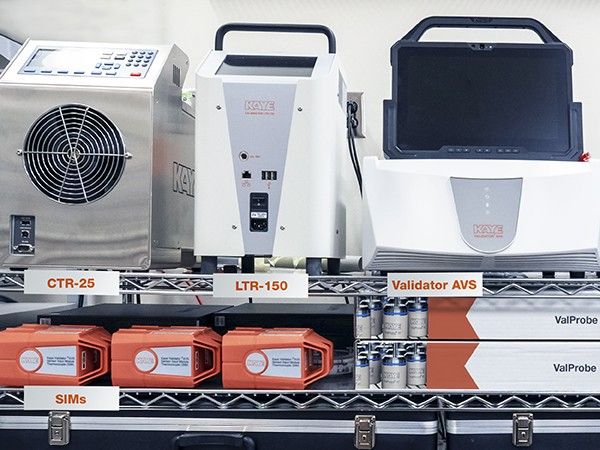In today’s fast-paced and technologically advanced world, the importance of precision and reliability cannot be overstated. This is particularly true in industries such as pharmaceuticals, food and beverage, aerospace, and automotive manufacturing. Ensuring that products meet stringent quality standards is critical. Here, validation equipment plays a crucial role.
What is Validation Equipment?
Validation equipment encompasses a range of tools and instruments designed to verify that manufacturing processes produce products consistently and to the required standards. These tools are essential for maintaining the integrity and safety of products, especially in industries where even minor deviations can have significant consequences.
The Importance of Validation Equipment
Validation equipment is vital for several reasons:
- Quality Assurance: It helps ensure that every product meets predefined quality standards, which is essential for customer satisfaction and regulatory compliance.
- Regulatory Compliance: Many industries are heavily regulated. Validation equipment helps companies meet the stringent requirements set by regulatory bodies like the FDA, EMA, and others.
- Process Optimization: By identifying variations in the manufacturing process, validation equipment can help optimize and improve efficiency, reducing waste and increasing productivity.
Types of Validation Equipment
There are various types of validation equipment, each serving a specific purpose. Some of the most common types include:
- Calibrators: These devices ensure that instruments used in the manufacturing process are accurate. Calibrators are crucial in maintaining the precision of measurement tools.
- Data Loggers: These devices record data over time, providing valuable insights into the performance of manufacturing equipment and processes.
- Temperature Mapping Systems: Used primarily in industries where temperature control is critical, these systems ensure that equipment and storage areas maintain the correct temperature.
- Pressure Validation Systems: These systems are essential in industries where maintaining specific pressure levels is crucial, such as in pharmaceuticals and aerospace.
- Flow Meters: These devices measure the flow of liquids and gases, ensuring that the correct amounts are used in the manufacturing process.
Applications of Validation Equipment
Validation equipment is used across various industries to ensure the quality and safety of products. Here are some key applications:
Pharmaceuticals
In the pharmaceutical industry, the accuracy and consistency of the manufacturing process are paramount. Validation equipment ensures that each batch of drugs meets the required standards for safety and efficacy. This includes validating the processes used in drug formulation, packaging, and storage.
Food and Beverage
Ensuring food safety and quality is critical in the food and beverage industry. Validation equipment helps maintain hygiene standards and ensures that products are safe for consumption. This includes validating cooking temperatures, packaging processes, and storage conditions.
Aerospace
In the aerospace industry, precision and reliability are non-negotiable. Validation equipment ensures that every component and system functions correctly. This includes validating pressure systems, temperature controls, and structural integrity.
Automotive
The automotive industry relies on validation equipment to ensure that vehicles meet safety and performance standards. This includes validating manufacturing processes, testing components, and ensuring the overall quality of the final product.
Benefits of Using Validation Equipment
Using validation equipment offers several benefits:
- Improved Quality: By ensuring that every step of the manufacturing process is consistent, validation equipment helps improve the overall quality of the product.
- Enhanced Safety: Validation equipment helps identify potential issues before they become significant problems, ensuring that products are safe for use.
- Cost Savings: By optimizing processes and reducing waste, validation equipment can lead to significant cost savings over time.
- Regulatory Compliance: Meeting regulatory standards is critical in many industries. Validation equipment helps ensure that companies remain compliant, avoiding costly fines and legal issues.
- Increased Efficiency: By identifying inefficiencies in the manufacturing process, validation equipment helps improve productivity and reduce downtime.
Selecting the Right Validation Equipment
Choosing the right validation equipment is essential for ensuring the effectiveness of the validation process. Here are some factors to consider:
- Industry Requirements: Different industries have different requirements. It’s essential to choose validation equipment that meets the specific needs of your industry.
- Accuracy and Precision: The equipment should provide accurate and precise measurements to ensure the validity of the validation process.
- Ease of Use: The equipment should be user-friendly, allowing operators to use it effectively without extensive training.
- Reliability: The equipment should be reliable and durable, providing consistent performance over time.
- Cost: While cost is an important factor, it should not be the sole consideration. Investing in high-quality validation equipment can lead to long-term savings.
The Future of Validation Equipment
As technology continues to advance, the field of validation equipment is also evolving. Here are some trends to watch:
Automation
Automation is becoming increasingly important in validation processes. Automated validation equipment can perform tasks more quickly and accurately than manual methods, reducing the risk of human error and increasing efficiency.
Data Integration
The integration of validation equipment with data management systems is another significant trend. This allows for real-time monitoring and analysis of validation data, providing valuable insights into the performance of manufacturing processes.
Internet of Things (IoT)
The IoT is transforming many industries, and validation equipment is no exception. IoT-enabled validation equipment can provide real-time data and alerts, allowing for proactive maintenance and quick response to potential issues.
Artificial Intelligence (AI)
AI is also making its way into the field of validation equipment. AI algorithms can analyze vast amounts of data, identifying patterns and trends that may not be apparent through traditional methods. This can lead to more accurate and efficient validation processes.
Conclusion
Validation equipment is an essential component of modern manufacturing processes. It ensures that products meet quality standards, comply with regulatory requirements, and are safe for use. As technology continues to advance, the capabilities of validation equipment are also evolving, offering even greater accuracy, efficiency, and reliability.
By investing in the right validation equipment and staying abreast of industry trends, companies can ensure the quality and safety of their products, optimize their processes, and remain competitive in an increasingly demanding marketplace.

